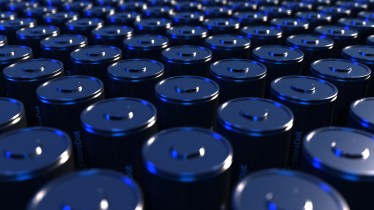StoreDot, a silicon-dominant extreme fast charging (XFC) battery technology for electric vehicles (EVs) company has said that its battery cells offer consistent and reliable winter performance.
This it says will allow EV drivers to recharge their vehicles even in freezing weather, while still maintaining an excellent driving range. With this technology, winter range anxiety is eliminated, providing EV drivers with a reliable and efficient solution.
The company says recent laboratory tests show StoreDot’s silicon battery cells reached 80% capacity when charged at -10deg C with standard charging speed. The battery cells have been tested and have shown a consistent discharge rate and an adequate driving range, even in sub-freezing conditions. At a temperature of 14deg F (-10deg C), the cells delivered over 85% of their full range capacity. Even in the extreme cold of -4deg F (-20deg C), the cells still provided over 70% of their full range capacity.
Compared to traditional EV batteries currently on the market, StoreDot’s XFC cells have higher energy storage capacity, faster charging speeds, and longer lifetime, making them future-proof and providing optimal performance year-round, regardless of the climate.
Dr Doron Myersdorf, CEO, StoreDot said, “Our latest tests have demonstrated that our batteries can outperform traditional cold weather range and charging limitations that often hamper electric vehicles in colder climates. Although all lithium-ion batteries tend to lose capacity in extreme cold, our innovative design that uses silicon-dominant anodes minimises this loss. Our batteries deliver optimal driving range even in most extreme, subzero conditions. With our revolutionary technology drivers can now conquer winter’s toughest challenges, ensuring a smooth driving experience in any climate or conditions and eliminating winter range anxiety.”
StoreDot has recently announced its anticipated milestones for 2024. These include the demonstration of the world’s first EV pack equipped with XFC technology, shipping prismatic B-samples to OEMs, and expanding operations in the US on the path toward commercialisation.
It claims to be on track with production-readiness of XFC cells that can deliver 100 miles charged in 5 minutes this year. The company aims to achieve 100 miles charged in 4 minutes in 2026 and 100 miles charged in 3 minutes by 2028.
